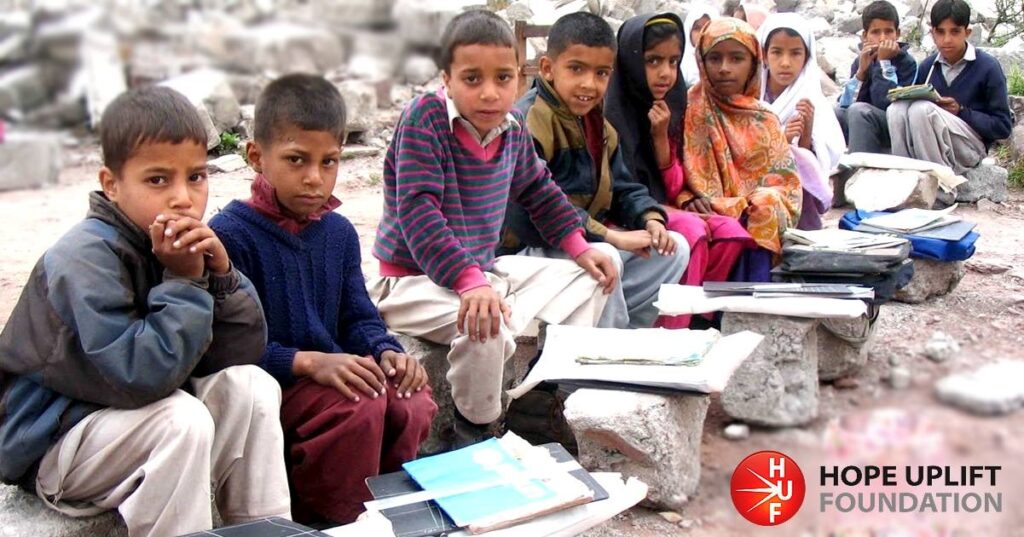
Education in Pakistan faces numerous challenges, making it imperative for non-governmental organizations (NGOs) to play an important role in empowering future generations. The educational landscape in Pakistan has its share of complexities, including limited access, quality disparities, and resource constraints. However, NGOs operating in the country have been instrumental in bridging these gaps.
These NGOs are committed to providing educational opportunities and training, particularly to underserved communities. They address various aspects of education, from basic literacy to specialized vocational training, ensuring a more inclusive and equitable educational ecosystem. In this regard, Hope Uplift Foundation will delve into the significant contributions of Educational NGOs in Pakistan by engaging with local communities.
Understanding Education NGOs
Education NGOs play a crucial role in shaping Pakistan’s educational landscape. These organizations focused on training and development, work tirelessly to bridge gaps and uplift communities. Education NGOs have a clear mission and vision to provide quality education and training opportunities. In Pakistan, non-profit entities dedicated to education and training are making a significant impact.
These Education and Training NGOs, often called educational charities, contribute to the nation’s educational growth. Their efforts extend beyond mere instruction, addressing the broader aspects of community development. By understanding these educational NGOs’ role and purpose, we recognize their transformative influence on individuals and communities, paving the way for a more educated and empowered society.
Challenges in Pakistan’s Education Sector
Pakistan’s education system is facing big problems. Because many Pakistanis are poor, it’s affecting education a lot. About 23 million kids between 5 and 16 years old are not attending school. There are many reasons, like social and cultural issues, not having enough money, and problems with the schools themselves. Poor children, especially those who are girls or live in certain areas, face these challenges even more. To fix these issues, we need to make changes in policies, provide more money, and focus on helping the most disadvantaged kids so that everyone can get a good education.
How Education NGOs Operate
Non-profit organizations (NGOs) for education in Pakistan are very important. Education Charities in Pakistan help poor communities that don’t have good access to education. These NGOs figure out where help is needed by looking at the education situation. They focus on places where the government and private organizations can’t reach. The NGOs do things like building schools, especially in faraway areas, and giving good education to poor kids and in need. They also help train teachers, create study plans, and support informal education. Thanks to these efforts, NGOs are making a big difference in improving Pakistan’s education system.
Role of Hope Uplift Foundation in Education
The Hope Uplift Foundation (HUF) is making a big difference in education in Pakistan. In Lahore, the HUF School helps 2000 kids from poor families every year. They give modern education and also focus on making kids better people. Stories from people and families show how well HUF is doing. For example, they’ve helped workers with low wages fix their homes.
They also started a small school, clinic, a place to learn skills, a shop for welfare, and even gave out small loans. HUF does a lot of different things to help the community, like public assistance, education, loans, skill training, helping women, water, health, and food. They want to be a place where people can get all the help they need.
Challenges and Opportunities for NGOs
Non Profit Educational NGOs in Pakistan face many challenges but also encounter significant opportunities. One of the primary hurdles is managing funding and resources effectively. This involves not only securing sufficient funds but also allocating them in a way that maximizes impact. However, this challenge can also be viewed as an opportunity to innovate and find new sources of funding or more efficient ways to use resources.
Another issue is scaling operations and ensuring sustainability. While this can be difficult, it also presents a chance for NGOs to refine their strategies, improve their operations, and make a greater impact on the communities they serve. These challenges, when approached correctly, can lead to growth and success.
The Road Ahead
Education and Training NGOs in Pakistan are looking ahead with ambitious plans and aspirations. They aim to expand their reach, improve the quality of education, and foster an environment that encourages lifelong learning. These organizations envision a future where every child has access to quality education, regardless of their socio-economic background.
The long-term impact of these efforts on Pakistani society cannot be overstated. By empowering the youth with education, these NGOs are not just improving individual lives but are also contributing to the social and economic development of the country. The road ahead is challenging, but the potential rewards for Pakistani society make the journey worthwhile.
Conclusion
Education holds transformative power. It not only enlightens individuals but also paves the way for societal progress. In Pakistan, NGOs are harnessing this power to uplift communities. However, the journey is long, and the path is steep. The Hope Uplift Foundation is one such organization striving to make a difference. But we cannot do it alone.
We need your support. Whether you’re a reader learning about their work or a potential donor, your contribution matters. Your involvement can help transform lives and build a brighter future for Pakistan. Let’s join hands to make a difference because every child deserves the chance to learn and grow. Donate Now!

